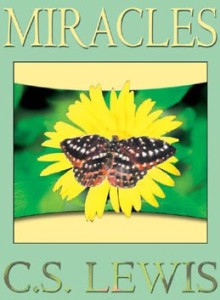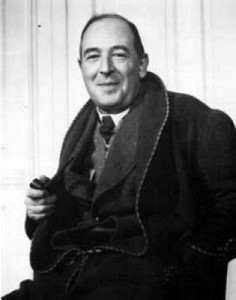 In his book Miracles, C. S. Lewis takes aim at “naturalists” who say that there is no “outside” reference [i.e., God] for calling anything good or evil.
In his book Miracles, C. S. Lewis takes aim at “naturalists” who say that there is no “outside” reference [i.e., God] for calling anything good or evil.
When men use the words, “I ought,” Lewis notes, they are saying something about the essence of right and wrong that is built into the universe. In fact, naturalists should never use such terminology: “But if Naturalism is true,” he writes, “‘I ought’ is the same sort of statement as ‘I itch’ or ‘I’m going to be sick.'”
In effect, if you are going to be consistent as a naturalist, you would not acknowledge any kind of “I ought”; it doesn’t exist. Yet, Lewis explains,
The Naturalist can, if he chooses, brazen it out. He can say . . . “all ideas of good and evil are hallucinations—shadows cast on the outer world by the impulses which we have been conditioned to feel.” Indeed many Naturalists are delighted to say this.
There’s a slight problem, though, for those who attempt to explain good and evil in this way:
But then they must stick to it; and fortunately (though inconsistently) most real Naturalists do not. A moment after they have admitted that good and evil are illusions, you will find them exhorting us to work for posterity, to educate, revolutionise, liquidate, live and die for the good of the human race. . . . They write with indignation like men proclaiming what is good in itself and denouncing what is evil in itself, and not at all like men recording that they personally like mild beer but some people prefer bitter.
 Those of us who have a better grasp of eternal right and wrong—good and evil—have an obligation to communicate the inconsistency of the naturalist position. Lewis certainly fulfills this obligation when he continues,
Those of us who have a better grasp of eternal right and wrong—good and evil—have an obligation to communicate the inconsistency of the naturalist position. Lewis certainly fulfills this obligation when he continues,
Do they remember while they are writing thus that when they tell us we “ought to make a better world” the words “ought” and “better” must, on their own showing, refer to an irrationally conditioned impulse which cannot be true or false any more than a vomit or a yawn?
The saving grace is that they cannot be consistent with their own professed ideology:
My idea is that sometimes they do forget. That is their glory. Holding a philosophy which excludes humanity, they yet remain human. At the sight of injustice they throw all their Naturalism to the winds and speak like men.
Lewis’s call to consistency is one Christians need to heed as well. Do we say one thing theoretically and act as if it is not true? Do we have a theology, for instance, that tells us that we are not really accountable for our actions, yet then act as if we are? Something to think about—all the time.
